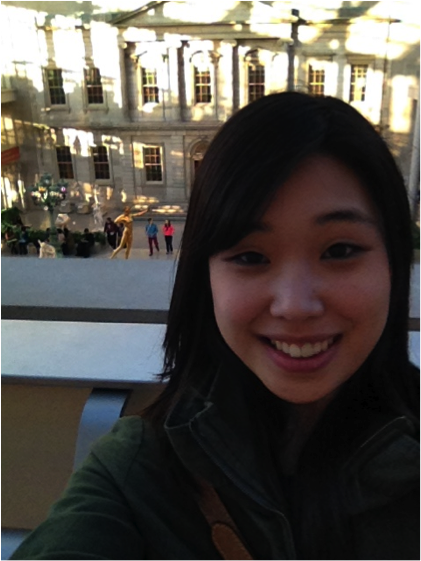“Yes, of course I remember/ how could I forget how you feel…” As the soothing words of Frank Ocean’s “Thinking of You” washed over me, I thought back to when I was a senior at Wellesley: anxious for what was to come, nostalgic about everything and everyone, but nevertheless eager to burst out of the bubble.
In August 2012, I flew to South Korea and I was thrown into the world of Hanyak, Korean traditional medicine. My curiosity about oriental medicine was sparked during the only anthropology class I took at Wellesley: Cultures of Cancer. One guest speaker, a cancer survivor, discussed being unable to discuss alternative therapies with her oncologist. This made a lasting impression on me as an aspiring physician; if patients wanted alternative therapies, I needed to become a doctor who was open-minded and willing to discuss other treatment possibilities. Through the Fulbright Program, I sought to interact with Korean traditional medical professionals in my first non-laboratory-based research position, to gain a different perspective on oriental medicine. From this, I developed an appreciation for medicine beyond Western medicine, realizing the value of alternative treatments in treating chronic and as-of-yet incurable diseases.
Having broadened my understanding of medicine outside of the “conventional” Western setting, I was interested in seeing yet another aspect of medicine: community health care for underserved populations in the US. As an AmeriCorps VISTA for Emmaus, a homeless shelter in Massachusetts, I’ve helped assess and build the health-related infrastructure, setting up fitness programs (Yoga and Zumba), coordinating flu shots and TB clinics, and providing other health-related services. I was drawn to the Health and Wellness Educator position at Emmaus because of past experiences volunteering at another shelter in Boston, and wanted more exposure to complex issues such as poverty, hunger and homelessness. For the past 9 months, I have been exposed to and humbled by the critical health needs of the homeless, which are often a result of complex social and economic problems.
Both of my post-graduate experiences have deeply impacted and changed me for the better. As much as I loved Wellesley, I cannot emphasize enough the importance of stepping out and trying new things in unfamiliar environments post-graduation. I have gained so much more from the challenges that presented themselves during these past two years, which have shaped me into a more well-rounded and grounded individual.
Let me end with some advice:
1) Create a network of support and encouragement. At Wellesley, I had a really supportive base of friends and professors who served as my sounding-board for ideas and provided advice on many different aspects of my life! For example, my Fulbright project was conceived in my research lab after bouncing off ideas to my research professor.
2) Take risks when you’re young and don’t worry too much about “forever” yet. As a recent graduate, I chose to pursue things completely out of my field of study– traditional Korean medicine and homeless health care– which has broadened my perspective on medicine and prepared me to become a better physician in the future. Try new things and experiment… trust me, you have time!
3) Be confident. Wellesley cultivates us to be strong independent women, and you definitely will need to take that confidence and run with it after you graduate. I learned very quickly in Korea that as a recent college graduate, you are at the bottom of the professional workforce. To have your voice heard, you need to project confidence and intelligence– showcase your smarts!
4) Be open-minded and humble. Concurrently with confidence, I think you need to be equally willing to see other people’s points of view and learn from those you are around. That goes hand in hand with humility, for you start to develop empathy, respect and humility when you really start to understand someone else’s situation.
Thank you for letting me ramble on! If you’re interested in Fulbright or AmeriCorps, feel free to contact me via email: klee3@wellesley.edu.
 Alison Kyung-Hwa Lee was a pre-med at Wellesley, graduating in 2012 with a BA degree with Honors in Biological Sciences. From 2012-2013 she investigated the current uses and status of Korean traditional medicine on the Fulbright research fellowship. Since 2013, Alison has been working as an AmeriCorps VISTA for a homeless shelter in Haverhill, MA. She plans to attend Yale medical school this fall, utilizing what she has learned during her Fulbright fellowship and AmeriCorps Service in her pursuit of medicine.
Alison Kyung-Hwa Lee was a pre-med at Wellesley, graduating in 2012 with a BA degree with Honors in Biological Sciences. From 2012-2013 she investigated the current uses and status of Korean traditional medicine on the Fulbright research fellowship. Since 2013, Alison has been working as an AmeriCorps VISTA for a homeless shelter in Haverhill, MA. She plans to attend Yale medical school this fall, utilizing what she has learned during her Fulbright fellowship and AmeriCorps Service in her pursuit of medicine.